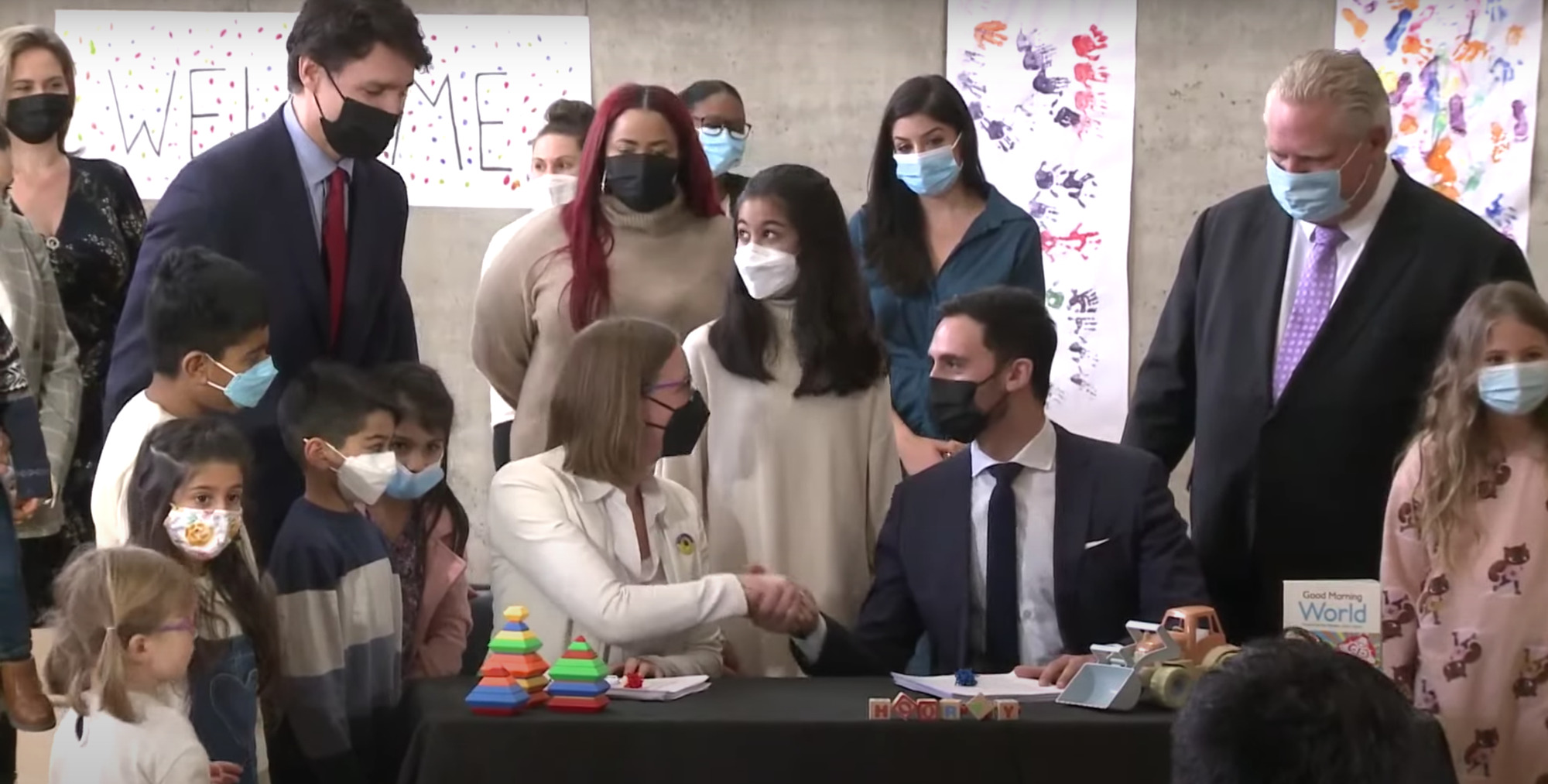By Daniel Lonic and Manan Nijhawan
Daycare fees in Ontario could be reduced to an average of $10 a day by Sept. 2025 thanks to an agreement reached between the province and the federal government.
“This is what getting it done looks like, this is what collaboration looks like, this is what putting parents first looks like,” said Minister of Education Stephen Lecce during a press conference to announce the deal on Monday.
Parents could see the first effects of the deal as early as April, when daycare fees will be reduced by 25 per cent for children five years or younger.
“It’s about damn time,” said Christina Carmo, a mother of two who has one child in daycare.
Ontario is the last province to reach an agreement with the Trudeau government to implement the daycare program.
“It’s probably politics, which is unfortunate,” said University of Toronto professor Gordon Cleveland, who studies child-care policy.
“They needed to take this decision last year to deal with the expansion of capacity and the hiring of workers. That would have allowed us to expand more and more quickly.”
Unlike other provinces where families received their rebates at the start of the year, parents in Ontario won’t start receiving their rebates until May.
“This comes down just before the election, the money will be turned back to families beginning of April, they’ll get a refund. And that, that cheque will probably appear in early June,” said Cleveland.
“Daycare costs are absolutely insane,” said Alison Slack. The mother of two stays at home with her two kids, because sending them to daycare would cost $3,200 a month. “It’s so bad I might not be able to go back to work.”
The plan calls for another 25% fee reduction by the end of the year, with additional reductions to come in 2024 in order to reach that $10 a day target.
The agreement also includes funding for 86,000 new childcare spaces in Ontario by the end of 2026.
However, attracting workers to those centres could be a problem.
“We’re experiencing very tight labour markets right now. So it needs to jump to $25 an hour as a minimum payment now, this will attract young trained workers to the sector,” said Cleveland.

